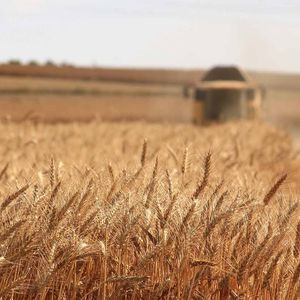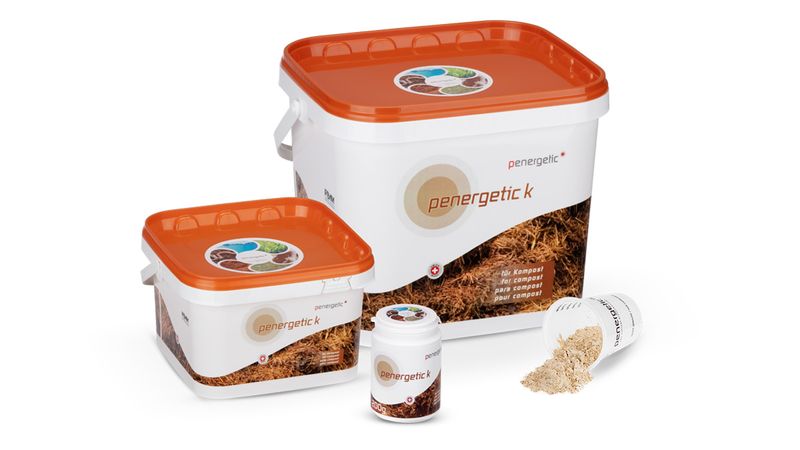
penergetic k
Take advantage of biostimulation with Penergetic for humus formation and reduced barn odour.
penergetic k supports the rotting process and binds odours. The compost obtained improves the formation of humus in the soil. Use this profitable fertilizer. The stable application improves the climate for humans and animals.
Application
penergetic k is added to the compost or applied on bedding in the barn. penergetic k can be applied dry (mixed with sand or similar material) or, alternatively can be applied by mixing with water first.
An application is recommended by Penergetic Int., but should be adapted to the local conditions, such as weather, climate, compost composition, etc.
Dosage
6 gr/m2 or 50 gr/m3

6 ml/m2 or 50 ml/m3
The indicated dosages are general standards. Please ask for certain types of compost and have the dosage adapted to the specific needs!
Mode of Action
Better decomposition and conversion of compost results in higher quality.
A shortened, aerobic rotting process and the compost obtained improves the formation of humus in the soil.
By promoting ammonia degradation, odour emissions are significantly reduced.
The absence of smell noticeably reduces fly and insect pressure.
Helps in the conversion of and thus leads to a faster rotting.
Testimonials of Penergetic users
FAQ
Application of penergetic k reduces unpleasant odours in animal houses, from compost heaps, manure or organic waste. The composting process itself is accelerated and optimized; the final product (humus) becomes enriched by the aerobic rotting processes.
By activating microorganisms, the base material in the compost heap is transformed into valuable compost. In animal houses it improves sanitation and climate.
penergetic k improves aerobic rotting and accelerates compost conversion. At the same time it can help to improve climate in the animal house by reducing the ammonia content.
penergetic b is used in the field. By activating soil life, soil fertility is improved and the soil structure is optimized.
penergetic k is not a disinfectant. It works with the existing bacteria, which over time is brought back into balance between "good" and "bad" bacteria. It is possible to support hygienisation through biological activity, which promotes stabilisation of the environment. penergetic k has no chemical effect. This means that there is no direct effect on harmful organisms. By supporting the aerobic environment, salmonella and E. coli cannot develop so well. However, a sustainable reduction depends on other parameters (hygiene, feeding, water quality, etc.).
penergetic k can be mixed with barnyard manure, horn, blood and bone meals, composting additives or other chemical and biological products.
It is possible to improve the effectiveness of these agents in this way, therefore we recommend reducing spraying agents. Close observation of the compost is required as well as monitoring the reduction of these agents. Furthermore the agents should be reduced in several steps.
![[Translate to Englisch:] sugar beet: increased yield despite mineral nitrogen reduction](/fileadmin/_processed_/d/1/csm_female-farmer-posing-in-sugar-beet-field-2021-08-29-02-25-56-utc_f36eb5ed0a.jpg)

